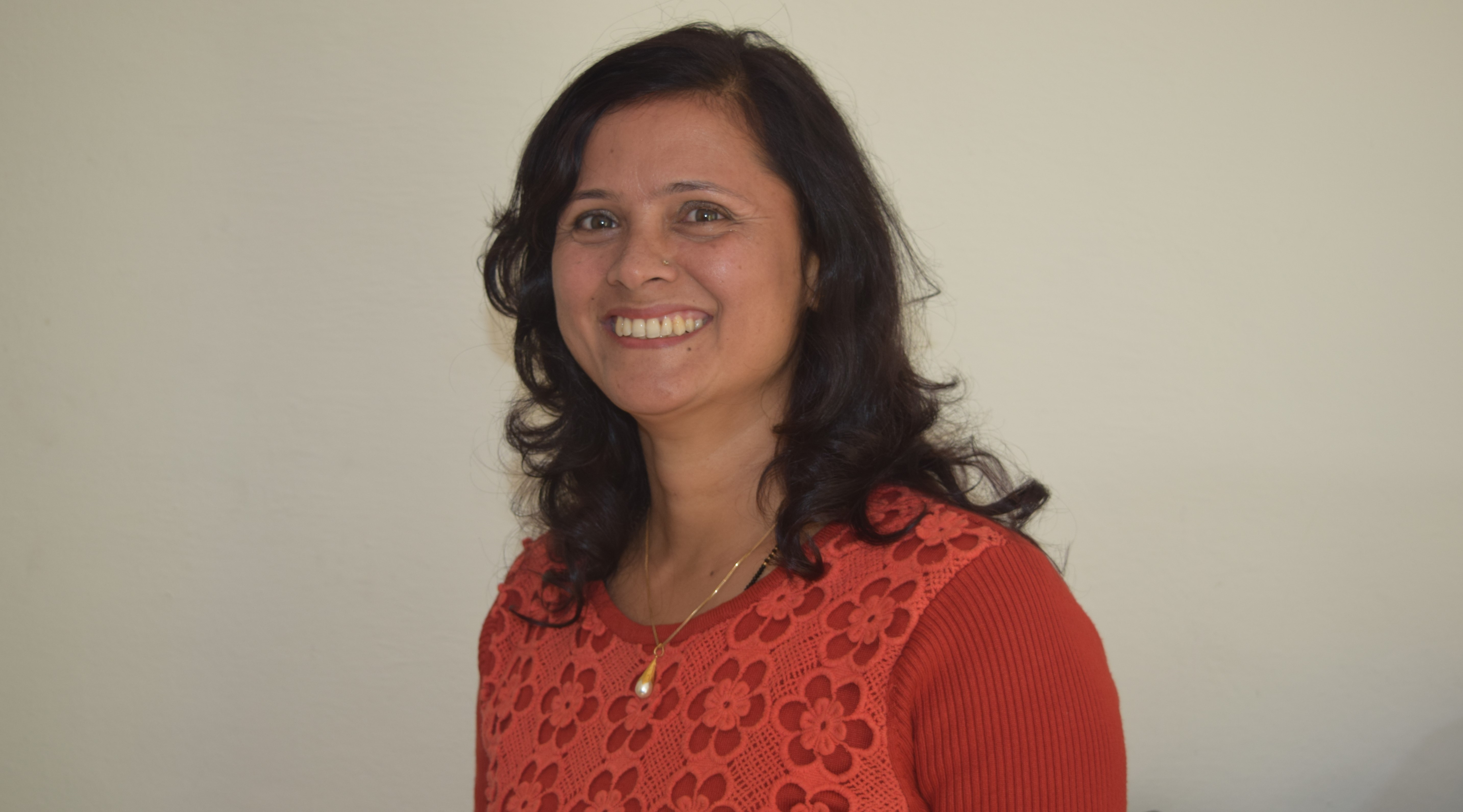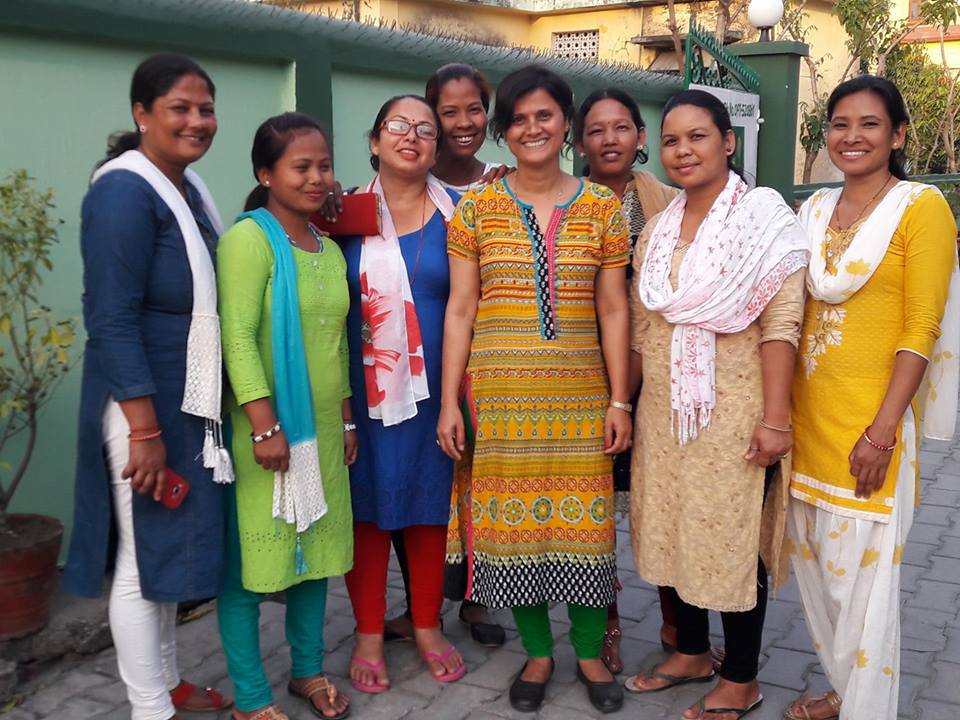SOCIAL ENTREPRENEURSHIP BLOG SERIES- ISSUE NO. 2: EmPOWERing Women Entrepreneurs-The Story of Kalpavriksha
A Chinese Proverb Says, "Give a man a fish and you feed him for a day; teach a man to fish and you feed him for a lifetime."
After Mina Mahato from Kailali got her own business card, she was excited by the fact that finally she had gotten her own identity.
Established in 2012, Kalpavriksha Greater Goods is a business organization that is contributing to building a network of women entrepreneurs in Nepal to promote sustainable clean energy distribution in Nepal. It is run under the umbrella of the global organization called ‘Empower Generation’. The major goal of Kalpavriksha is to distribute and sell life-saving clean energy products by establishing the network of women entrepreneurs in the remote areas of Nepal to those who are deprived of electricity and who depend on the traditional system of fuel.
The CEO and Founder, Sita Adhikari, shared her experiences of the social business she started in 2011 with Bikas Udhyami.

How did the initiative start?
The condition of women in the remote areas of Nepal is very critical. They are not economically empowered and decision-makers are only men. So we searched for ideas to empower these young women as businesswomen and entrepreneurs. While doing so, we found that women suffer most in the household using the traditional fuel system. Thus, we decided to make solar products accessible to them. In other words, while trying to identify solutions for the energy crisis of Nepal, especially for women, we started this initiative.Till Date we have covered 12 district of Nepal which includes, Kailali, Bardiya, Chitwan, Dhading, Nuwakot, Gorkha, Nawalparasi, Sindhupalchow, Dhanusha, Sarlahi, Siraha and Kaski. We plan to extend our work within these districts creating more entrepreneurs and sales agents under them.
What is your business model?
We supply clean energy products, mainly focusing on portable solar lanterns, metallic improved cook stove (Sudhariyeko Chulho), water filters etc. We try to reach those remote areas where people are deprived of electricity and women are our main target groups because they actually suffer most because of the traditional fuel system. We think women are those who can relate to actual problems and can be the medium to promote these products. For distributing the products, we firstly identify the area in which we want to work and then we come up with a notice calling for applications in coordination with local organizations like cooperatives. When the women are listed out, we motivate them and find out who can be the part of our initiative. We train them and provide necessary business and entrepreneurial skills. And after going through the necessary skills development programs, they will start their own business of distribution of our clean energy products. The most important part is that we have small portable products anyone can afford. These products costs around NPR 1000 and have at least two years of warranty with a replacement guarantee. So anyone can use it and because it costs very little, women are able to sell it properly.
How is this initiative is different from others?
There are several other initiatives which provide solar products for free, and some other organizations which provide skills and training for women. They are also doing so to benefit society, but we are focused on making our initiative a sustainable business so that those who are associated with us can find ways to earn in order to be able to support their livelihood. We not only teach the business skills, but also help them in running the business. We have a society where women have a hard time competing in the business environment. So we actually teach how business is done practically based on a modern business concept and train the women of the households for the business. We supply them products, give basic promoting and selling skills, and also provide all the techniques like keeping the daily account that a small business owner needs for developing them like entrepreneurs. We train them for creating a Business Model Canvas, through which they can come up with their own ideas and a model for how to make their idea work and happen in real context. In this way, we create ownership of the women in their business.
Why you chose only women?
We choose only women, because they have suffered most in the absence of these products, and the beneficiaries of these products are those who are already suffering. Those who have suffered can explain it better. They first use and test our products and then only agree to sell it. They also can explain the change they found after switching to our products.
Another reason is that this is necessary. It is necessary for women to earn. Unless they have money in hand, women’s empowerment won't succeed. They should not be seen as beneficiaries, they should be respected and promoted as stakeholders.

How is your business creating social impact?
Firstly, solar products are beneficial for the society. Before, people were affected by the smoke of the traditional fuel, but now they have got an improved firewood stove. Not only this, the cost of daily used products like candles that cost on average NPR 20 per day can reach up to 600 per month and 7200 per year. Through our business, we are providing solar lanterns starting from NPR 1000 with two years of warranty. This is a welcome change our products have brought in rural households.
Secondly, women who were inside the four walls are now earning for themselves through these products. It is not only us, but they too are making profit through solar products business. It has given them an entrepreneurial spirit. In addition, the capacity and skills of marginalized women have been developed. The women used to have a secondary status in the family, be it husband, father or father-in-law, but today they have their own identity as the business owner or CEO of their own Business. Besides, they are respected and their family listens to their decisions. The self-respect of the women has been restored and the economic condition of the family has also been uplifted. The leadership capability of women has been increased. For example, in Dhadhing, one of the women entrepreneurs is running as a candidate for the position of Deputy Mayor. Seeing the women’s success this way, other women are also encouraged to start their own business.
Also, if you go to Kailali to see the sales agents, who have worked for us and you find that they have established their own business. It means that we are spreading business consciousness in Nepal as well.
What are your key successes and challenges?
We have established 20 registered businesses and have trained 300 women for running their business. We have created visionary entrepreneurs. The main challenge is to identify the needy women entrepreneurs. Who is a real changemaker? Who are passionate about their business? We convince women, who have the ability to be the business owners and bring them into our program.
Another challenge is the drop out: As we can see, long-term planning is very difficult in Nepal and that is directly reflected in the family. People don’t know where they will be in the next five years. People are living in uncertainty. People want the immediate result from the business which is not possible. Besides, there are family reasons, migration, and change in priority which lead to dropout of entrepreneurs from the business.
How do males respond to this business?
The role of male members especially husbands for doing any business is important. The households with husbands, who support their wives well have done good in business, but the households in which the husband has exercised unnecessary influence over their wife’s business in most cases have also been the ones most often to fail in terms of business.
What are the main challenges for women in establishing their business?
The major challenge for women in business I see is that women are seen and treated only as a tool of the family and as a person who cannot lead. Very few have decision making power. Secondly, there is not any trend of taking risk for women in the family. If a male member wants to do business or go abroad for foreign employment, the family manages the money anyhow but when it comes to women, the family will not be ready to invest in her. If she decides to run her business, it’s always hard for her to manage the early investment.
What are your comments and suggestions for the young people in Nepal?
Nepal is full of opportunities. Nepali must adopt an entrepreneurial spirit if they want to do anything and it must start with the family. Creativity and innovation must be brought about like a wave. Be creative in thinking about solutions to challenges. The entrepreneurial spirit increases the feeling of patriotism and provides necessary solutions inside the country. Before starting anything think once if you can sustain or not, because doing business in Nepal is just like choosing an uncertain destination to go to.
